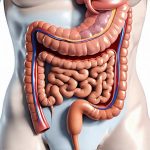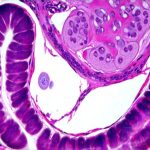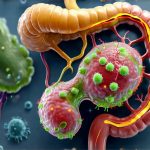The gut microbiome – a vast ecosystem of trillions of bacteria, fungi, viruses, and other microorganisms residing in our digestive tract – has emerged as a central player in overall health. It’s no longer simply about digestion; this complex community influences immune function, mental wellbeing, nutrient absorption, hormone regulation, and even chronic disease risk. Increasingly sophisticated research reveals the intricate connection between what we eat and the composition of our gut microbiome. While many dietary approaches promise rapid weight loss or improved health, extreme diets – those characterized by severe restriction, elimination of entire food groups, or dramatic shifts in macronutrient ratios – can profoundly disrupt this delicate ecosystem, potentially leading to unintended consequences. Understanding how these diets impact gut health is crucial for making informed choices about our eating habits and prioritizing long-term wellbeing over quick fixes.
The allure of rapid results often drives individuals towards extreme dieting practices. However, the microbiome isn’t designed for sudden or drastic changes. It thrives on diversity and a consistent supply of nutrients from a varied diet. When faced with severe restrictions, the microbial community can undergo significant shifts – some beneficial species may diminish while others, less desirable ones, flourish. These alterations aren’t merely cosmetic; they can impair gut function, compromise immune defenses, and potentially contribute to a cascade of health problems. This article will explore the ways in which extreme diets impact the gut microbiome, highlighting the potential risks and emphasizing the importance of sustainable, balanced nutrition.
The Impact of Dietary Restriction on Microbial Diversity
Dietary restriction – whether it’s eliminating carbohydrates entirely (keto), cutting out all animal products (vegan without careful planning), or severely limiting caloric intake – fundamentally alters the food supply available to gut microbes. This directly impacts microbial diversity, a key indicator of a healthy and resilient microbiome. A diverse microbiome is capable of performing a wider range of functions, making it more adaptable to change and better equipped to resist colonization by harmful pathogens. Extreme diets often lead to a reduction in this diversity, creating an environment where less beneficial bacteria can dominate.
Consider the ketogenic diet: while effective for some in short-term weight loss, its extreme low-carbohydrate nature drastically reduces the availability of prebiotic fibers – the food source for many beneficial gut bacteria. These fibers, found abundantly in fruits, vegetables, and whole grains, are fermented by microbes into short-chain fatty acids (SCFAs) like butyrate, propionate, and acetate. SCFAs are crucial for gut health, providing energy to colon cells, reducing inflammation, and strengthening the intestinal barrier. A keto diet severely limits SCFA production, potentially weakening these protective mechanisms. Similarly, highly restrictive vegan diets, if not carefully planned to include a wide range of plant-based protein sources and fermented foods, can lack certain essential nutrients needed by specific microbial populations.
The consequences of reduced diversity extend beyond digestive health. Studies have linked decreased microbiome diversity to increased risk of inflammatory bowel disease (IBD), allergies, autoimmune disorders, and even mental health issues like anxiety and depression. It’s not just what we eliminate from our diet that matters; it’s the ripple effect this has on the microbial ecosystem within us. A healthy gut isn’t about eliminating foods, it’s about nourishing a diverse community of microbes. Understanding gut microbiome is vital to making informed choices.
Extreme Diets & Gut Permeability (“Leaky Gut”)
Beyond diversity, extreme diets can compromise the integrity of the intestinal barrier – often referred to as “gut permeability” or colloquially, “leaky gut.” The intestinal barrier is a single layer of epithelial cells lining the digestive tract, acting as a selective gatekeeper. It allows nutrients to be absorbed into the bloodstream while preventing harmful substances like bacteria and undigested food particles from escaping. A healthy barrier is maintained by tight junctions between these cells. However, several factors associated with extreme diets can weaken these tight junctions and increase gut permeability.
Chronic stress induced by restrictive dieting (the mental burden of adhering to strict rules) coupled with nutrient deficiencies—common in highly limited diets—can directly impact the health of the intestinal lining. Furthermore, a reduction in SCFA production, as discussed earlier, weakens the colon cells that depend on these metabolites for energy and structural integrity. When gut permeability increases, larger molecules can cross into the bloodstream, triggering an immune response. This chronic low-grade inflammation is implicated in various health problems, including autoimmune diseases, allergies, and metabolic disorders.
The impact of extreme diets isn’t limited to just causing leaky gut; they can exacerbate existing issues. Individuals with pre-existing IBD or sensitivities may find their symptoms significantly worsened by restrictive dietary patterns that further compromise the intestinal barrier. Restoring gut barrier integrity requires a holistic approach, focusing on nutrient density, stress management and avoiding extreme restrictions. If you experience discomfort, understanding healthy diets is important.
The Role of Fermented Foods & Probiotics
While extreme diets can negatively impact the microbiome, incorporating fermented foods and potentially probiotic supplements might offer some mitigation – though they are not a substitute for a balanced diet. Fermented foods like yogurt (with live cultures), kefir, sauerkraut, kimchi, and kombucha naturally contain beneficial bacteria that can contribute to microbial diversity. These foods introduce new microbes into the gut, which may help repopulate populations diminished by dietary restriction. However, it’s important to note that the survival rate of these probiotics through digestion is variable, and their impact depends on individual factors and the specific strains present.
Probiotic supplements offer a more concentrated dose of specific bacterial strains. While research suggests certain probiotic strains can be beneficial for gut health, they aren’t universally effective, and the “right” strain varies depending on the individual’s microbiome composition and health goals. – It’s crucial to choose high-quality probiotics from reputable brands. – Consider consulting with a healthcare professional before starting any probiotic regimen, especially if you have underlying health conditions. – Probiotics are most effective when combined with prebiotic fibers (from fruits, vegetables, and whole grains) which act as food for the introduced bacteria.
It’s vital to remember that fermented foods and probiotics aren’t “quick fixes.” They work best as part of a broader strategy focused on long-term dietary changes and gut health support. Trying to counteract the effects of an extreme diet with probiotics alone is like trying to bail out a sinking ship with a teaspoon – it addresses the symptom, not the underlying problem. Sometimes gut sensitivities can be linked to mental health.
Rebuilding After Dietary Extremes
Recovering from the microbiome disruption caused by an extreme diet requires a gradual and mindful approach. Abruptly reintroducing restricted foods can overwhelm the digestive system and exacerbate symptoms. Instead, focus on progressively expanding your dietary repertoire while prioritizing nutrient-dense foods.
Here’s a step-by-step process for rebuilding gut health post-extreme dieting:
1. Reintroduce Foods Slowly: Begin by adding small amounts of previously eliminated food groups back into your diet one at a time, carefully monitoring for any adverse reactions.
2. Focus on Prebiotic Fibers: Incorporate foods rich in prebiotic fibers like onions, garlic, leeks, asparagus, bananas, oats, and apples to nourish beneficial gut bacteria.
3. Prioritize Whole Foods: Emphasize unprocessed, whole foods – fruits, vegetables, lean proteins, healthy fats, and whole grains – as the foundation of your diet.
4. Stay Hydrated: Adequate hydration is essential for optimal digestion and nutrient absorption.
Patience is key. It takes time for the microbiome to rebuild and adapt. Avoid falling back into restrictive patterns. Seek guidance from a registered dietitian or healthcare professional who can help you develop a personalized plan for restoring gut health and achieving sustainable wellbeing. Gut healing takes time, but is achievable!
Long-Term Sustainability & Balanced Nutrition
The most effective way to protect your gut microbiome is to avoid extreme diets altogether. Focus on adopting a balanced, nutrient-rich dietary pattern that supports microbial diversity and overall health. This doesn’t necessarily mean adhering to rigid rules or eliminating entire food groups – it means embracing moderation, mindful eating, and prioritizing whole, unprocessed foods.
Consider the Mediterranean diet: rich in fruits, vegetables, whole grains, legumes, nuts, seeds, olive oil, and fish — as a model for sustainable, gut-friendly nutrition. – Incorporate mindful eating practices, paying attention to your body’s hunger and fullness cues. – Manage stress levels through techniques like yoga, meditation, or spending time in nature.
Prioritizing long-term health over short-term fixes is the cornerstone of a thriving microbiome. A diverse, resilient gut ecosystem isn’t just about physical wellbeing; it’s about fostering mental clarity, emotional stability, and a vibrant life. Remember that food is medicine, and choosing to nourish your gut microbiome is an investment in your overall health and longevity. Cold weather can also impact gut health. You might also consider doing a microbiome analysis to learn more about your specific gut flora! Finally, be aware that caffeine can also play a role in gut health.


















